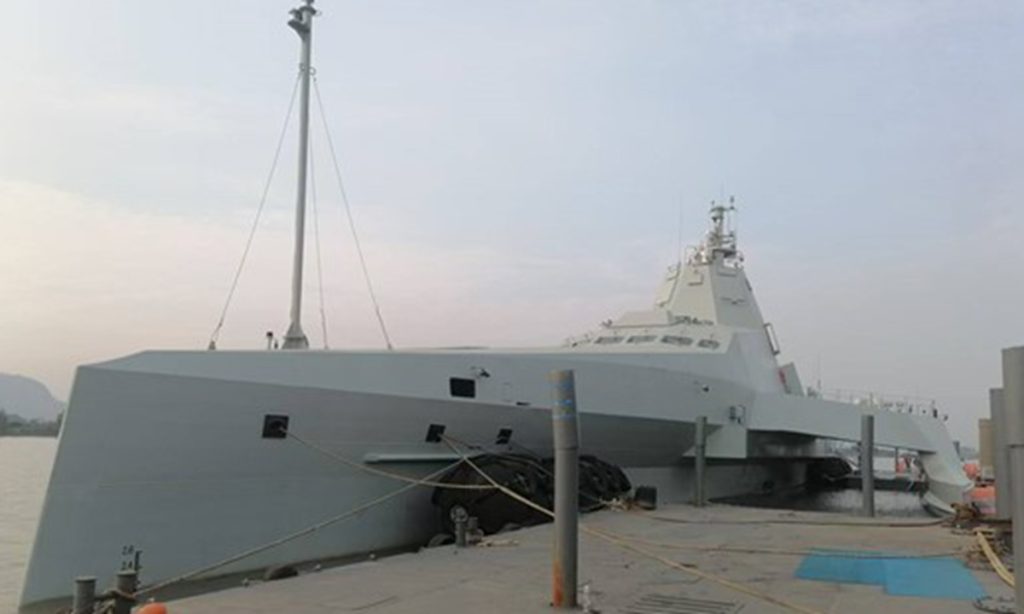China displays large unmanned vessel, surface drone group at airshow

In addition to exhibiting aviation, aerospace, and land equipment, the ongoing Airshow China 2024 also gives a glimpse into China's naval and maritime equipment, including a large unmanned vessel and a surface drone group.
The Orca unmanned stealth combat vessel debuted at the second exhibition area of Airshow China. Its trimaran design provides high speed, stability and an expanded deck area despite its limited displacement.
Officially designated as the JARI-USV-A large unmanned combat vessel, the Orca measures 58 meters in length, 23 meters in beam width, and 4 meters in depth, has a full displacement of 420 tons, a maximum speed of 40 knots, and a range of 4,000 nautical miles, according to data released by the China State Shipbuilding Corporation Limited.
The Global Times learned that the Orca prioritizes stealth capabilities. It is equipped with a remote-controlled weapon station at its bow, which can be stowed under the deck when needed to maintain a streamlined surface.
The bridge of the unmanned ship has a four-unit vertical launch system for missiles, and which can be expanded to 12 units if required, according to a scale model of the Orca, which is displayed at the airshow in addition to the genuine vessel.
It is also equipped with several phased array radars to enhance its detection capabilities for both aerial and maritime targets.
In addition, the Orca has a flight deck at its stern that can host unmanned helicopters enabling various missions, such as anti-submarine warfare and patrol operations.
Another Chinese exhibitor, Yunzhou Tech, displayed a surface drone formation at the airshow, as four of its unmanned boats showcased impressive maneuverability in water-based operations.
In a demonstration session, the four unmanned boats shifted between formations like side-by-side, straight-line, and S-shape, as they demonstrated their ability to assault floating targets and intercept fast-moving surface targets.
All the surface drones displayed are mass-produced models, the Global Times learned from Yunzhou Tech. The demonstrations showed daily mission scenarios of marine police and maritime safety administrations, and reflected the surface drone formation's capability to collaborate. This level of collaboration is notably challenging, as the unmanned boats need to adjust movement and navigation based on environmental factors like wind, waves, and currents before developing plans to jointly complete mission objectives.